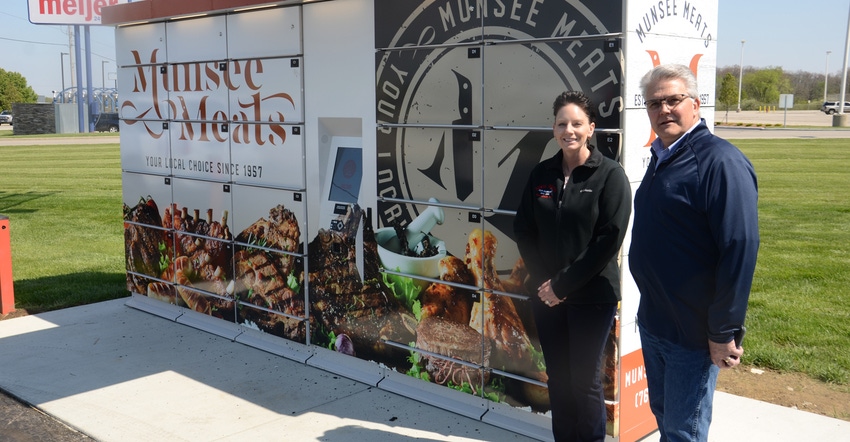
In June 2020, Bruce Kettler, director of the Indiana State Department of Agriculture, saw a good challenge coming. He anticipated receiving roughly $4 million from the federal CARES Act passed to aid in COVID-19 relief.
“We considered ideas, and assisting meat processors in the state soon came to the top of the list of things we should do,” Kettler says. “Many smaller meat-processing operations in Indiana were adversely affected by the COVID-19 shutdown. This looked like an opportunity to help them recover, upgrade equipment, perhaps expand and, at the same time, improve conditions for worker safety.”
The money came from the Coronavirus Aid, Relief and Economic Security Act, and in a few short months, the Indiana Meat Processing Expansion and Development Program through ISDA became reality. But it wasn’t an easy process.
“We had to put together a program, promote it and get the money actually spent by Dec. 30, 2020,” Kettler says. “That’s a large undertaking when you are talking about a grant program.”
Several divisions of state government played a big role, including the lieutenant governor’s office and the Office of Management and Budget, Kettler says. They also worked closely with the Indiana Meat Packers and Processors Association. Darla Dewig, whose family owns a meat processing facility in Gibson County, Ind., is the executive director.
“We were happy to come alongside and get this program going for our members,” she says. “There were real needs for more capacity, and for upgrading facilities to enhance worker safety.”
Successful rollout
It was September 2020 before all the details were worked out for the grant program. Nevertheless, ISDA received 60 applications from Indiana meat processors, requesting $6,810,732. Forty projects were approved and completed, with the state investing $3,784,293.74. Indiana in turn received the money from federal funds through the CARES Act.
“A key part of the program was cost sharing,” Kettler explains. “The applicants had to match the grant, meaning they had to pay at least 50% of the total cost.”
Total matching funds put up by processors were $5,872,696.41. “For them to be able to match and get equipment purchased in such a short window was amazing,” Kettler adds.
The money was used for various projects. For example, some invested in new, upgraded flooring in retail or working areas that is safer for employees. Knightstown Meats and Catering invested in new machines, which greatly increase their capacity for processing meat and producing ground beef.
Munsee Meats, Muncie, invested in a new machine to vacuum-pack meats. The new owners, bent on innovation, also invested in a stand-alone retail unit, known as an Automated Farmers Market, which functions like an ATM. Customers preorder frozen meats and then retrieve them from a locker at the AFM location, using a QR code.
State officials estimate that the average increase in processing capacity at these 40 locations, spread around Indiana, is 97%. Increases are much larger in some plants than others, because some invested in grinding capacity, while others used funds to increase slaughter capacity.
ISDA estimates that 237 job positions were created, including part-time and contract positions. That’s a 25% average increase, with an increase of 20% in full-time jobs.
All this doesn’t mean you still won’t experience long waits for custom butchering. Dan Titus, owner of the Knightstown facility, notes that while their project helps retail capacity, they still have long waiting lists for those who want animals butchered.
Read more about:
Covid 19About the Author(s)
You May Also Like




